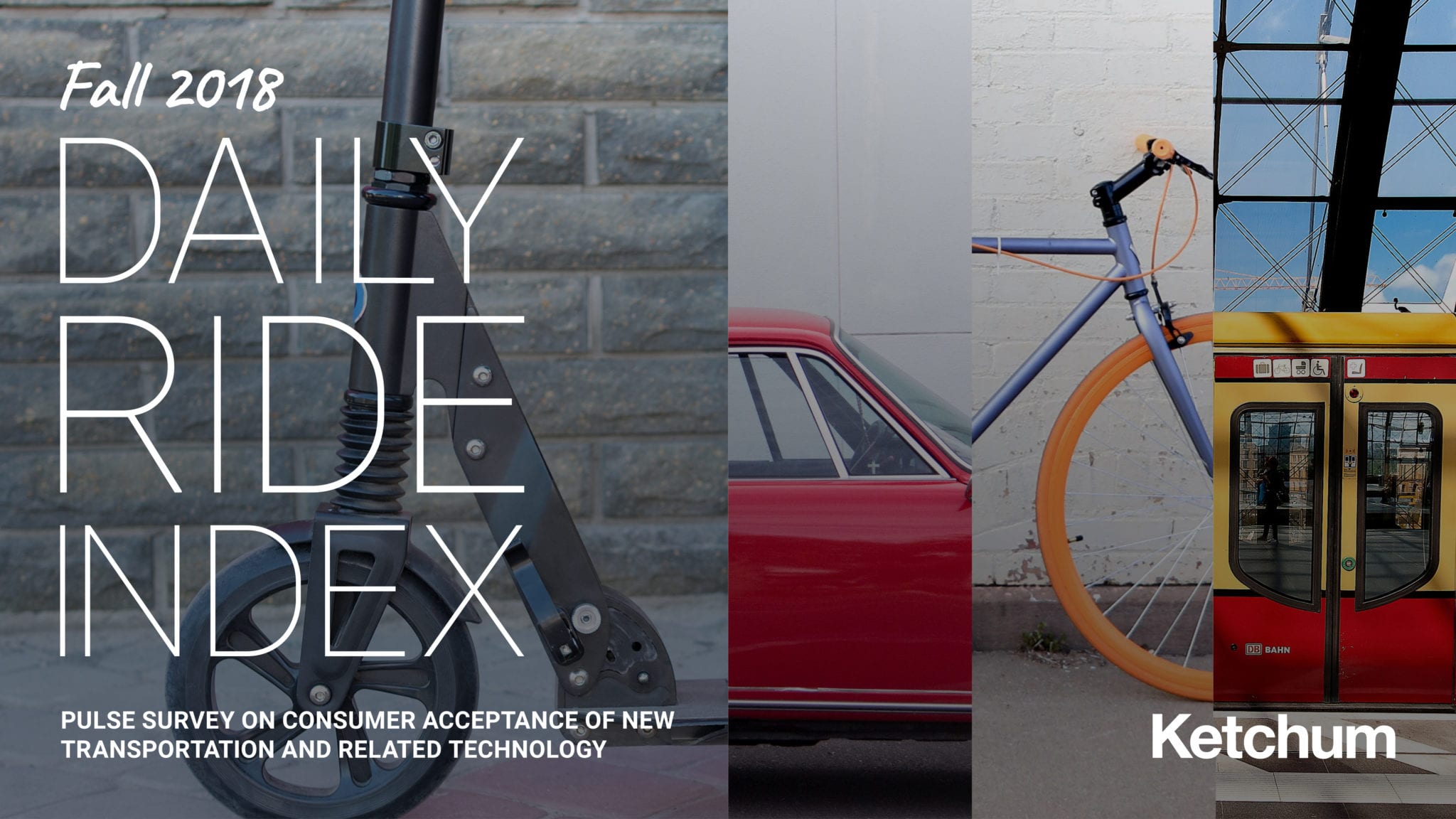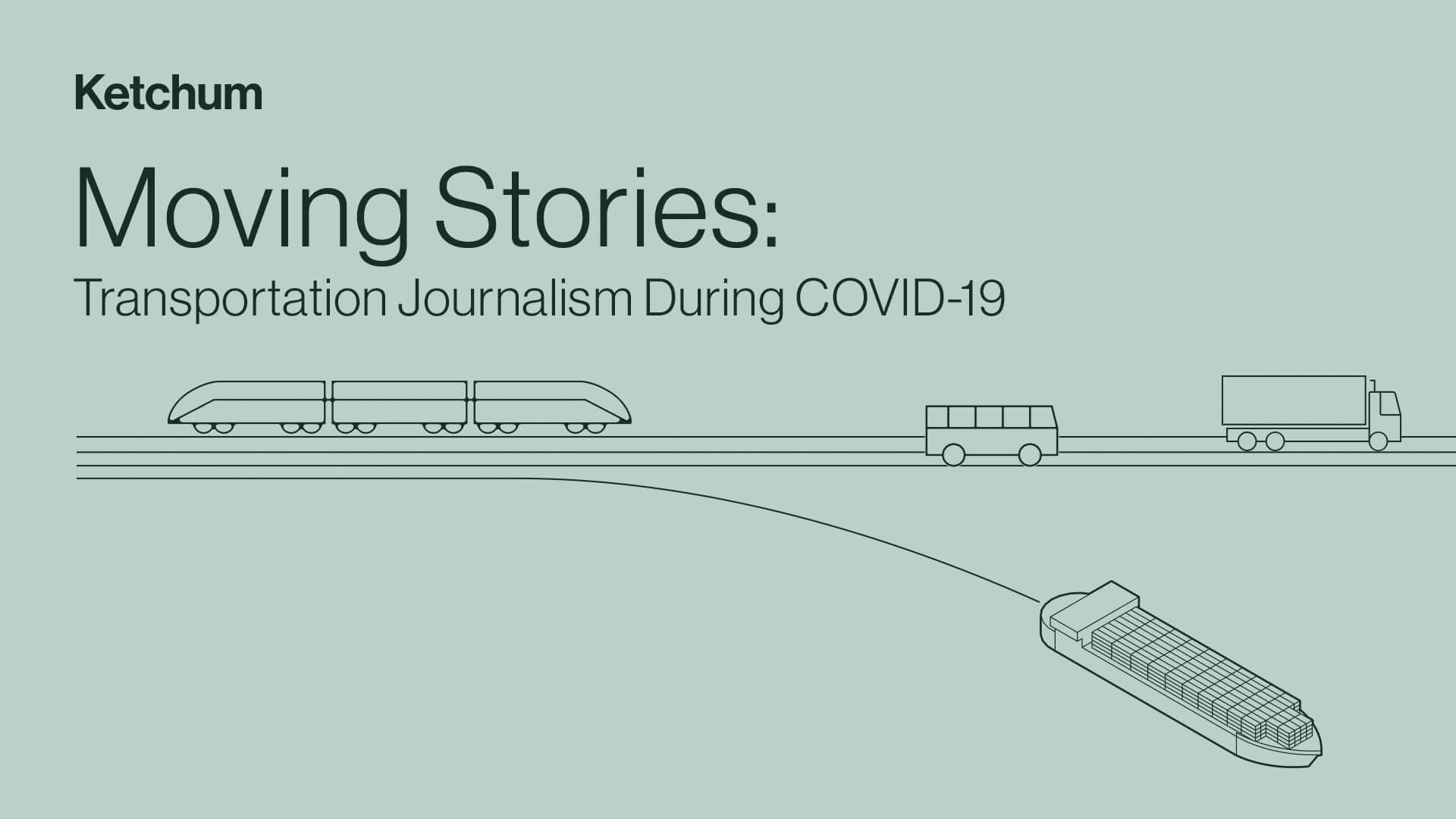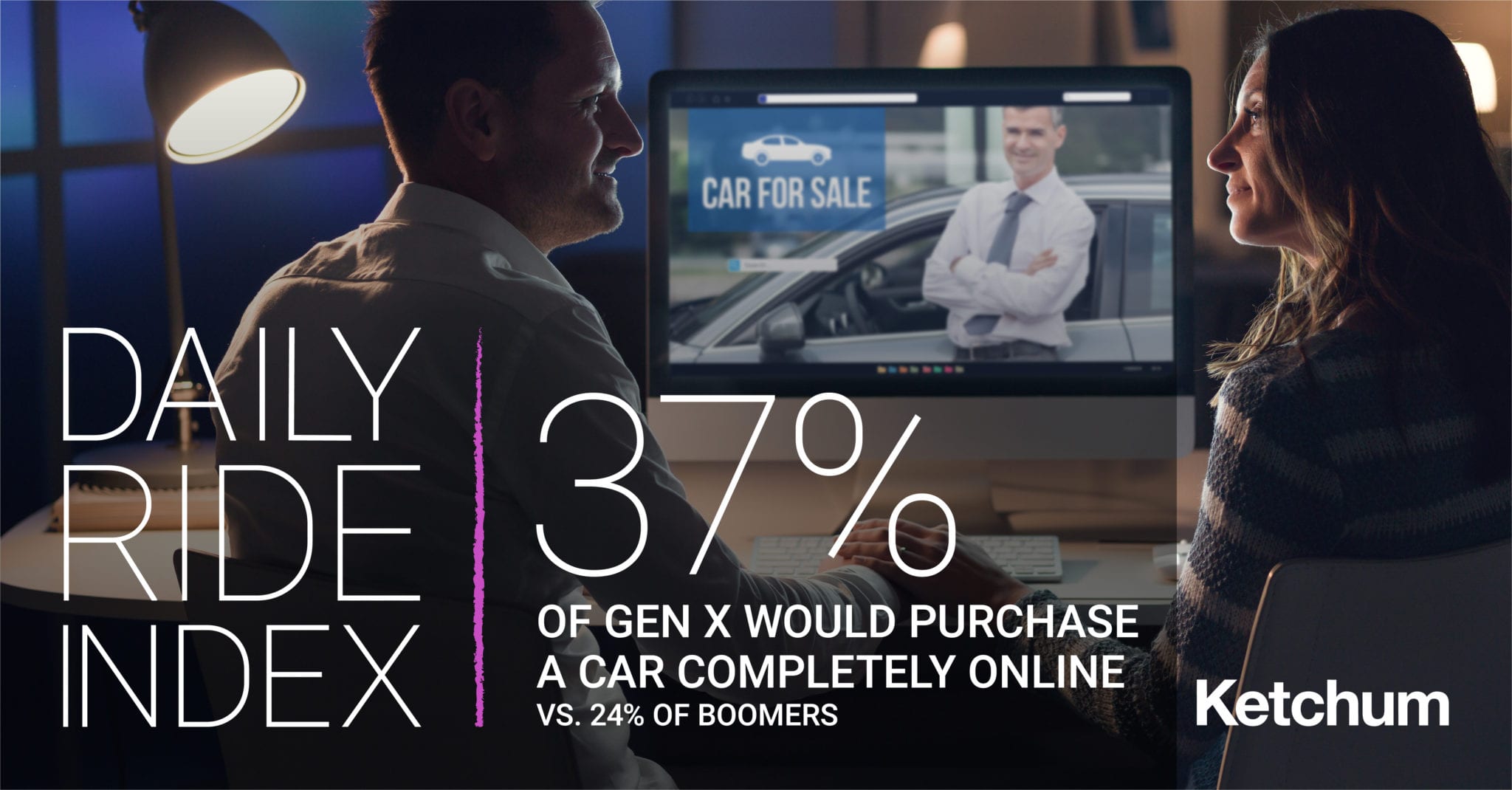California’s Hydrogen Highway. New York’s Second Avenue Subway. Boston’s Big Dig. Each one, like the Jetsons and their crazy flying cars, promised to solve transit issues. But unlike George, our daily commutes are still stuck in neutral.
Amid rapid transportation innovation, we seem miles away from widespread technology and infrastructure that will revolutionize our daily travel. Why? There are myriad answers, but one that seems to be under-examined is – what do consumers really want?

The first installment of Ketchum’s Daily Ride Index examines the willingness of consumers to adopt new forms of transportation. This recurring index reflects our commitment to tracking changes in consumer appetite for new and emerging technologies.
Our benchmark findings offer tremendous insight into the changing mobility mindset in today’s fast-paced world, including surprising trends around who is truly leading the charge for change. Following are five takeaways, with more information available… just ask!
- 3 in 10 respondents (29 percent) have considered trading in their personal vehicle for other transit options. The most common reason for this is cost of vehicle ownership, followed by environmental concerns. A shocking 41 percent of men say they have considered giving up their personal vehicle.
- Our focus on millennials as change-agents may be overlooking another group. Gen X is on the brink of a transportation revolution, with 44 percent of respondents saying they have considered giving up their own ride in favor of other options, compared to 37 percent of millennials and just 13 percent of Boomers.
- Car companies better prepare for a wave of electric vehicle (EV) shoppers. Nearly a quarter (24 percent) of respondents will consider an EV in the next 12 months – a staggering number given that less than 2 percent of new car sales are pure EVs today. Half (52 percent) of respondents say they are likely or very likely to consider a conventional internal combustion engine vehicle (e.g., traditional gasoline vehicle), compared with 30 percent who will consider a hybrid.
- Transportation-as-a-service is happening. 1 in 5 respondents (19 percent) say they use pay-as-you-go transportation options (defined as public transit, paid ride-sharing apps, taxis and on-demand rentals of bikes/scooters) daily.
- When it comes to longer commutes, personal vehicles dominate. The average time spent per week in personal vehicles is 9 hours and 43 minutes… 3X more than all pay-as-you-go services, where respondents average 3 hours and 15 minutes per week combined.
I find the results of our inaugural Daily Ride Index both reassuring and surprising. Our love affair with cars is far from over and we continue to be a driving culture, but EVs are increasingly of interest to shoppers. And the trend toward broadening our mobility is showing signs of progress in many areas, especially among men and Gen Xers, who are most willing to trade in their keys if other transit models can meet their daily needs.
Follow along with Ketchum’s Transportation experts as we track this progress moving forward and start to identify the audiences and transportation technologies that are most likely to propel us into the Jetson-like future that today is still more fiction than fact.



